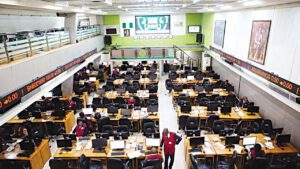
Uncertainty, risks on Nigerian economy as CBN postpones MPC meeting
By Seun Ibiyemi
The Central Bank of Nigeria has again postponed the meeting of its monetary policy committee despite the surge in inflation.
This is according to a report by Bloomberg on Monday, which quoted the CBN’s Director of Corporate Communications, Dr Isa Abdulmumin, who said, “MPC is not holding” a meeting this week in a text message response.
The meeting, which was scheduled to be held on Monday and Tuesday, has been postponed for a second time since Olayemi Cardoso became governor in September.
This latest postponement will keep investors and analysts waiting a bit longer for Cardoso’s approach to surging inflation, which hit 27.33 percent in October 2023.
Recall in a recent economic analysis, it has been reported that Nigeria is grappling with a relentless surge in inflation, with the inflation rate increasing 24 times in the span of 25 months.
The National Bureau of Statistics’ Commodity Price Index reports have painted a grim picture of the country’s economic landscape from October 2021 to October 2023.
The data revealed a worrying trend where the inflation rate has consistently risen, with the exception of a slight dip in December 2022, where it decreased marginally to 21.34 percent from the 21.47 percent recorded in November of the same year.
Despite this brief respite, the overall trajectory has been upward, with the inflation rate climbing from 15.99 percent to a staggering 27.33 percent by September 2023. Inflation, as defined by Investopedia, refers to the general increase in prices and the consequent decline in the purchasing power of money.
This economic phenomenon is particularly detrimental to consumers, as it diminishes the value of currency, making goods and services more expensive over time. The rate at which this purchasing power erodes is typically represented by the average rise in the cost of a basket of goods and services.
The implications of this soaring inflation are far-reaching for the average Nigerian. To put it into perspective, two years ago, a monthly salary of N100,000 could comfortably cover monthly expenses of N50,000, which constituted a 50 percent expenditure of one’s salary.
However, with the current inflation rate, the same amount of money now holds less value, severely impacting the cost of living and the ability of individuals to meet their financial obligations.
In a swift response to Nigerian NewsDirect, the Director/Chief Executive Officer, Centre for the Promotion of Private Enterprise (CPPE), Dr. Muda Yusuf said that MPC meetings are statutory in nature and also a major source of information on monetary policy direction.
The outcomes are critical for investment decisions domestically and externally. The CBN must have some good reasons for the postponement.
Dr. Muda said perhaps it’s because “we have a new dispensation in the CBN where the entire top hierarchy are new. The CBN governor and his four deputies are all new.”
“Nonetheless, the postponement ought to be properly communicated to investors within and outside our shores.
“Otherwise, uncertainty and risks in the economy would be further aggravated. Outcomes of MPC meetings bring clarity to the direction of monetary policy and many economic players expectedly look forward to it.”



